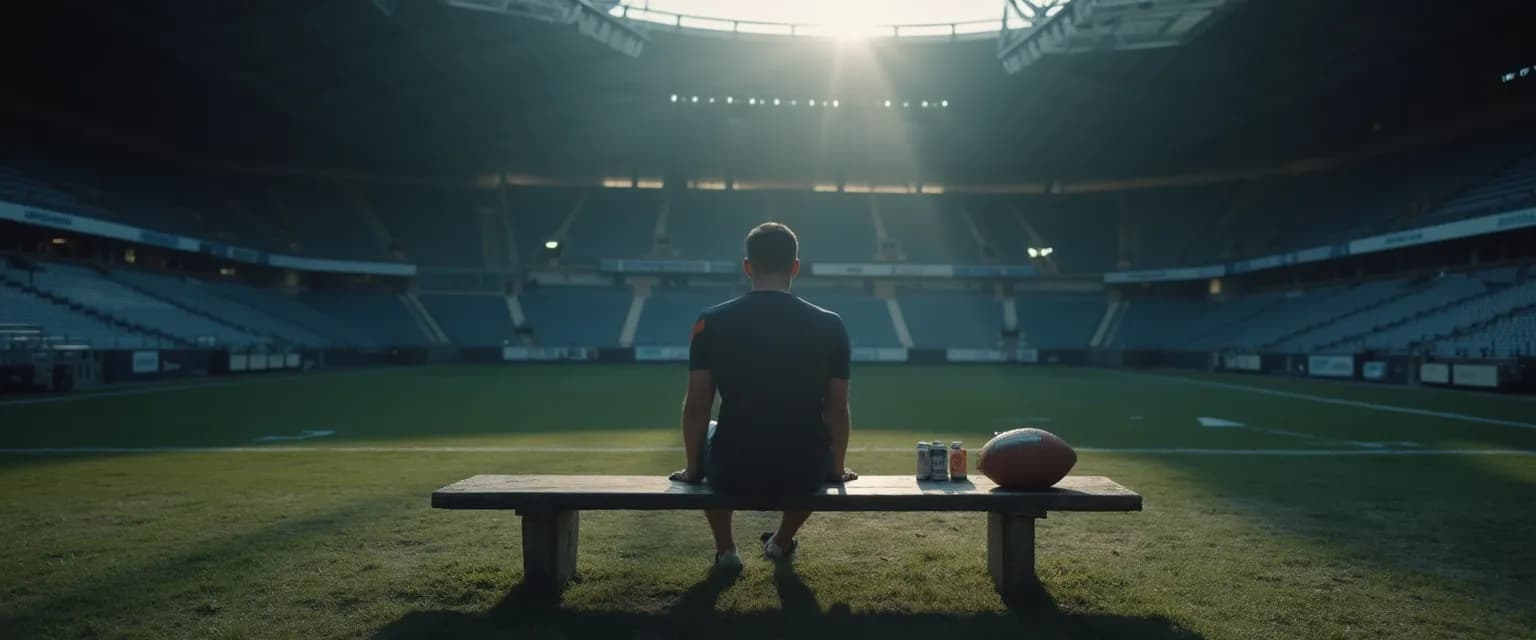Transforming Anger: Navigate the 5 Stages of Grief for Emotional Growth
When an athlete's career comes to an abrupt end due to injury, the emotional aftermath can feel like a hurricane. The 5 stages of grief—denial, anger, bargaining, depression, and acceptance—provide a valuable framework for understanding this emotional journey. For athletes who've built their identity around physical performance, this grief isn't just about losing a job—it's about losing a core piece of who they are. Understanding the 5 stages of grief helps athletes recognize that their emotional responses are normal and part of a larger process of emotional healing.
The transition from active athlete to former athlete triggers intense emotions that often manifest as anger or frustration. These feelings aren't signs of weakness—they're natural responses to significant loss. By learning to identify where you are in the 5 stages of grief, you gain powerful tools for emotional intelligence that help transform this challenging transition into an opportunity for growth.
Athletes who understand the 5 stages of grief find themselves better equipped to navigate the emotional rollercoaster that follows a career-ending injury. Instead of being overwhelmed by emotions, they can recognize each stage as a stepping stone toward a new chapter.
Understanding the 5 Stages of Grief in Athletic Career Transitions
The 5 stages of grief manifest uniquely in athletes facing career-ending injuries. Let's explore how each stage typically unfolds in this specific context:
Denial: The Protective Shield
In the denial stage, athletes often refuse to accept the permanence of their situation. You might hear yourself saying, "This is just temporary" or "I'll be back better than ever." This protective mechanism gives your brain time to process the shock, but staying here too long can delay necessary emotional processing and create mental roadblocks.
Anger: The Emotional Eruption
The anger stage often hits athletes particularly hard. You might feel rage toward your body for "betraying" you, toward teammates who continue competing, or toward the circumstances of your injury. This anger isn't something to suppress—it's a natural part of the 5 stages of grief that needs acknowledgment and healthy expression.
Bargaining: Searching for Alternatives
During bargaining, athletes often seek second, third, or fourth medical opinions, thinking, "If I just try this experimental treatment..." or "Maybe if I train differently..." This negotiation phase represents your brain's attempt to regain control in an uncontrollable situation.
Depression: The Emotional Valley
When the reality of your new circumstances fully registers, depression often follows. Your identity as an athlete feels stripped away, and the future seems uncertain. This stage of the 5 stages of grief brings profound sadness that can manifest as loss of motivation, sleep disturbances, or withdrawal from social connections.
Acceptance: Finding New Purpose
Acceptance doesn't mean you're happy about your career ending, but rather that you've integrated this reality into your life narrative. Many athletes describe this final stage of the 5 stages of grief as finding peace and discovering new aspects of their identity beyond sports.
Practical Tools for Moving Through the 5 Stages of Grief
Navigating the 5 stages of grief requires practical strategies tailored to athletes' unique experiences. Here are effective techniques to help you move forward:
Quick Recognition Techniques
Learning to identify which stage of grief you're experiencing gives you power over your emotional responses. Try this simple check-in: pause during moments of strong emotion and ask, "Which of the 5 stages of grief might I be experiencing right now?" This awareness alone can reduce the intensity of challenging emotions and help you transform negative energy into something constructive.
Stage-Specific Micro-Practices
- For denial: Create a daily ritual acknowledging one concrete way your life has changed
- For anger: Channel physical energy through alternative activities like swimming or cycling
- For bargaining: List what's within your control versus what isn't
- For depression: Connect with other athletes who've successfully navigated similar transitions
- For acceptance: Identify transferable skills from your athletic career that apply to new pursuits
Remember that the 5 stages of grief aren't always linear—you might bounce between stages or experience multiple simultaneously. This is completely normal. The goal isn't to "graduate" from grief but to develop a healthier relationship with it.
The most effective 5 stages of grief guide for athletes combines self-awareness with action. By recognizing where you are in the process and applying targeted techniques, you transform this challenging transition into an opportunity for profound personal growth. While your athletic career may have ended, your identity as a resilient, disciplined individual with valuable life experience continues to evolve in exciting new directions.




